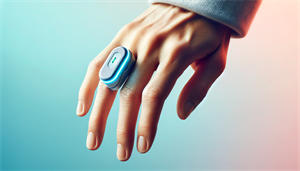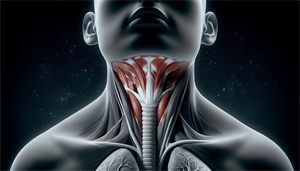Dehydration and sleep apnea might seem unrelated, but they can form a vicious cycle affecting your rest and health. If you’re waking up tired, it might not just be your sleep patterns that are to blame.
Learn why hydration may be part of the issue and how addressing both can lead to better sleep and improved vitality.
Key Takeaways
-
Dehydration can exacerbate the symptoms of sleep apnea, with physical discomfort like dry mouth, headaches, and muscle cramps causing sleep disturbances and affecting sleep quality.
-
Proper hydration throughout the day and balancing fluid intake at night can help manage sleep apnea and improve sleep quality, while certain lifestyle modifications such as limiting alcohol and caffeine can aid in maintaining hydration during sleep.
-
Medical treatment options for sleep apnea, like CPAP therapy and oral appliances, can alleviate symptoms but may require adjustments to manage side effects like dry mouth, highlighting the importance of consulting healthcare professionals for personalized treatment plans.
The Connection Between Dehydration and Sleep Apnea
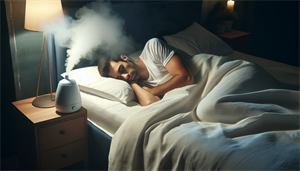
Dehydration can worsen sleep apnea, a common sleep disorder. Insufficient hydration can trigger physical symptoms like dry mouth, headaches, and muscle cramps. These symptoms can disrupt sleep, causing sleep deprivation and potentially worsening obstructive sleep apnea syndrome symptoms.
Besides, poor sleep quality can also be a consequence of dehydration. Symptoms like dry mouth, headaches, and muscle cramps may cause frequent awakenings, disrupting the sleep cycle and resulting in morning fatigue. This can lead to short sleep duration, which further affects sleep quality.
How Dehydration Affects Sleep Apnea
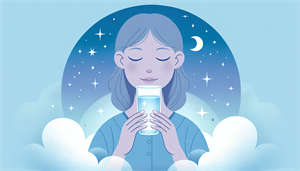
Physical discomfort due to dehydration can exacerbate sleep apnea symptoms. Those suffering from this sleep disorder often complain about dry mouth, headaches, and muscle cramps when dehydrated. When our bodies lack sufficient fluids, it can lead to these symptoms and even impact the frequency of nighttime urination.
Furthermore, dehydration can hinder the body’s fluid regulation during sleep. This impediment can escalate the risk of dehydration, thereby impacting sleep quality. Therefore, proper hydration is a vital part of sleep apnea management.
Fluid Balance and Sleep Quality
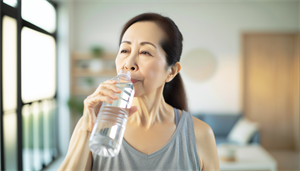
A balanced fluid intake is essential for good sleep quality and prevention of sleep disturbances due to chronic dehydration. Maintaining hydration throughout the day can mitigate dehydration during REM sleep and decrease nighttime disturbances.
When it comes to the best times to drink water, it is recommended to hydrate throughout the day at regular intervals. Specifically, you should drink water:
-
Two hours before bedtime to prevent dehydration-related sleep disturbances
-
At least four hours before sleeping if you want to avoid alcohol and caffeine
-
Whenever you feel thirsty
Remember, while it’s important to meet your daily fluid requirements, drinking extra water beyond this is not beneficial if you do not feel thirsty.
Strategies for Managing Dehydration and Sleep Apnea
Although the link between dehydration and sleep apnea is intricate, certain strategies can aid in managing these conditions. Proper hydration can lessen some physical effects of sleep apnea like muscle spasms, fatigue, and dry mouth. Additionally, dehydration can affect sleep by influencing the levels of melatonin, the hormone that regulates our sleep-wake cycle.
Balancing your nighttime hydration is also vital. A small amount of water or a hydrating drink before sleeping can ward off dehydration and reduce frequent urination. Yet, be cautious about the amount to prevent multiple nocturnal bathroom visits.
Besides hydrating, consider lifestyle changes such as weight loss, increasing physical activity, and incorporating high water content fruits and vegetables into your diet.
Hydrating Throughout the Day
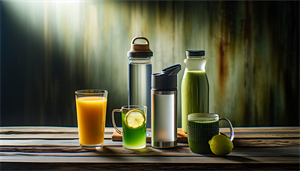
Keeping hydrated during the day is a straightforward and effective way to avoid sleep disturbances related to dehydration and enhance sleep quality. The suggested daily water intake for adults is approximately 15.5 cups for men and 11.5 cups for women. Regular water intake throughout the day can help maintain hydration.
Remember, it’s not just about the quantity, but also the quality of fluids you consume. Fluids such as:
-
drinking water
-
milk
-
coffee
-
tea
-
juice
Maintaining proper hydration can contribute to a good night’s sleep, ensuring overall health and sleep quality throughout the day.
Balancing Nighttime Hydration
Maintaining nighttime hydration is another crucial component in managing dehydration and sleep apnea. While it’s essential to stay hydrated, excessive fluid intake before bedtime can lead to frequent bathroom trips and disrupt your sleep.
Alcohol and caffeine, both diuretics, can also increase fluid loss, leading to more frequent nighttime bathroom trips and disrupted sleep patterns. Thus, limiting alcohol and caffeine consumption can help improve your sleep quality and hydration levels.
Lifestyle Changes for Better Sleep
Along with hydration, making certain lifestyle changes can significantly improve your sleep quality and manage sleep apnea. Maintaining a consistent sleep schedule helps regulate the body’s internal clock and promotes better sleep. Regular physical activity is another lifestyle change that can significantly improve sleep quality.
Additionally, optimizing your sleep environment can enhance your sleep quality. This can be achieved by managing light and noise levels, setting a comfortable room temperature, and keeping your space organized and serene.
The Role of Treatment in Combating Dehydration and Sleep Apnea
Treatment is critical in managing both sleep apnea and dehydration. CPAP therapy, for instance, can alleviate sleep apnea symptoms by enhancing airflow and reducing breathing interruptions. While this therapy can lead to dry mouth, ensuring adequate hydration can help mitigate this effect.
If you find that your current sleep apnea treatment is not delivering the expected relief, it’s crucial to seek guidance from a healthcare professional. They can assess your situation and recommend alternative treatments or adjustments to your current plan, especially for sleep apnea patients.
CPAP Therapy and Hydration
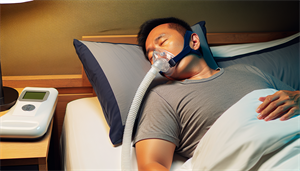
CPAP therapy, a common treatment for sleep apnea, has a significant role in managing dehydration. It works by using a heated humidifier to introduce moisture into the air provided by the CPAP machine, thus preventing dry mouth during sleep.
However, dry mouth can still occur due to factors such as mouth breathing, reduced saliva production, and mask leaks. To combat this, maintaining adequate hydration through regular water intake is recommended.
Oral Appliances and Dry Mouth
Oral appliances offer another non-invasive solution for managing sleep apnea and combating dehydration. They work by expanding the airway in the throat during sleep and gently repositioning the lower jaw and tongue, thereby alleviating symptoms.
These appliances also aid in preventing dry mouth by stabilizing the tongue and promoting proper saliva production. However, they can impact saliva production, leading to side effects like increased salivation or dryness in the mouth, which should be taken into account when using them.
When to Consult a Doctor
Knowing when to consult a doctor is integral to managing both dehydration and sleep apnea. If you experience severe dehydration or persistent sleep disturbances, or if your current sleep apnea treatment is not providing adequate relief, it’s time to consult a doctor.
A healthcare professional can help you navigate the complexities of sleep apnea and dehydration, providing guidance on the best treatment options and lifestyle changes to improve your sleep quality.
Recognizing Red Flags
Identifying red flags is helpful in determining when to seek medical consultation. If you experience excessive daytime sleepiness, frequent nighttime awakenings, or worsening sleep apnea symptoms, it’s time to consult a healthcare professional.
Similarly, symptoms of severe dehydration such as:
-
dry or sticky mouth
-
decreased urination
-
darker yellow urine
-
muscle cramps
-
dizziness
-
sunken eyes
-
rapid breathing
High blood pressure can indicate a need for medical intervention.
Evaluating Treatment Options
Discussing treatment options with a healthcare professional can aid in identifying the best way to manage dehydration and sleep apnea. If you suspect you have sleep apnea, a doctor can arrange for an at-home sleep apnea test, offering greater convenience and accessibility.
When evaluating treatment options for sleep apnea, it’s important to consider a variety of factors such as the severity of the condition, your overall health, and personal preferences. A sleep specialist can assess your condition and recommend suitable treatment options, which may include surgical options, positive airway pressure therapy, oral appliances, or orofacial therapy.
Summary
Understanding the connection between dehydration and sleep apnea is crucial in managing this sleep disorder. By adopting strategies to stay hydrated, making lifestyle changes, and evaluating treatment options with a healthcare professional, you can significantly improve your sleep quality and overall wellbeing.
Frequently Asked Questions
Does hydration help with sleep apnea?
Staying well-hydrated may help relieve some of the physical effects of obstructive sleep apnea, as there could be a connection between dehydration and OSA.
Does dehydration cause sleep problems?
Dehydration can disrupt sleep and lead to symptoms such as dry mouth and snoring, which can affect the quality of your sleep and lead to daytime fatigue. Additionally, dehydration can contribute to symptoms like headaches and weakness, which can interfere with your ability to sleep well.
Can a dry room cause sleep apnea?
Yes, a dry room can worsen sleep apnea, particularly in the winter when low humidity and breathing in cold, dry air can dry out the airway and nasal passages, making the condition worse.
What are the benefits of staying hydrated throughout the day?
Staying hydrated throughout the day can help prevent dehydration-related sleep disturbances and improve overall sleep quality. It's important to drink plenty of water to support a good night's rest.
How does CPAP therapy help in managing dehydration and sleep apnea?
CPAP therapy helps manage dehydration in sleep apnea by improving airflow and reducing breathing interruptions. Staying adequately hydrated can help alleviate the dry mouth side effect of the therapy.
